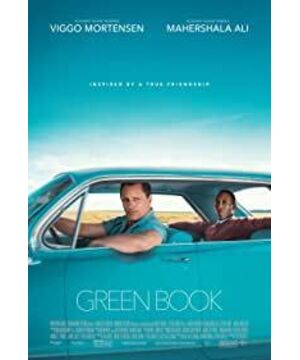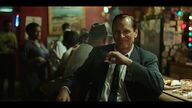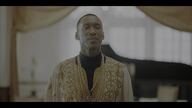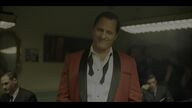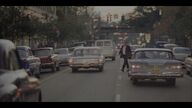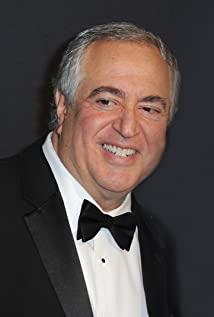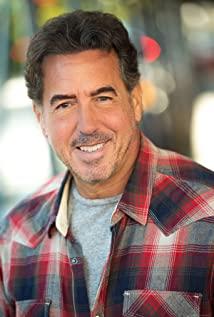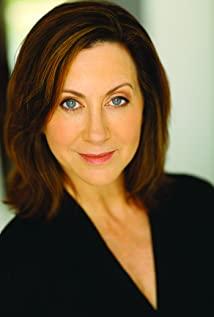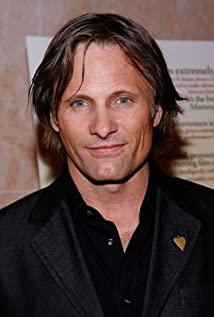I want to write beforehand that this article's indictment of the film stems from my recent viewing of "BlacKkKlansman," which also focused on racial tension and was nominated for Best Picture at the 91st Academy Awards. It is also a joke on racial issues based on identity dislocation. Why is the difference between the two so big? So I watched the movie again, and I found it was not that simple: "Green Book" seems to have carried out a more novel interpretation and discussion of this topic.
Frankly speaking, "Green Book" is undoubtedly top-notch in both comedy and film performance, even in last year's Oscar nominations for best picture. In fact, people from all walks of life have criticized the film; more typically, some members of the black community in the United States boycotted the "Green Book", mainly because it deliberately weakened or whitewashed the concept of racial conflict and discrimination at that time. I agree with this very much. .
My first question is, is this movie really white-minded and intentionally glorifying the racial conflict at the time? To some extent, I have to admit it is. The oppression of black people in the American South (and even the North) in Green Book, or even the plot in which Don gives up playing for the white people who disrespect him, is not pleasant. As a comedy movie, it's neither dark humor nor absurd farce or a sweet happy ending. This sense of comedy comes from the subversion of stereotypes. As a white but vulgar street gangster, Tony Lip and the tall artist Dr. Donald Shirley are two character designs. Even from these two titles, we can see that A sense of joy due to the reversal of positions.
However, thinking about it from another angle, the whole film is not a new attempt under a new situation. It will be released in North America in late November 2018, aiming at the Christmas schedule; the ending of the story also fits with the traditional Christmas family carnival atmosphere. It can be said that "Green Book" is a typical Christmas movie. People watching the movie under such expectations must also "pre-digest" the movie first. This kind of "predigestion", like pop music, establishes the corresponding comedic term, has already entertained the audience before the viewing event, and it is conceivable that the public will call friends to see how white drivers drive for black employers. of.
This content has become the main contradiction of the whole film, and it is also the "hidden tone" that this comedy is difficult to break through. It is almost impossible to break through this harmonious and soft tone of the film in terms of comedy effects and commercial layout. Just as neither Tony Lip nor Dr. Donald Shirley can solve the issue of race, the choice of subject matter and distribution plan for this commercial film cannot point to the direct and direct exposure of the black and white communities. Contradictions of regulation. The naked enslavement and bloody rebellion are incompatible with the story itself, so how to tell such a story has become the biggest obstacle, and the production staff subtly put the key to overcoming this obstacle on the character of Tony Lip. The transformation of black people shows how racial conflicts are resolved, and the effect is self-evident.
But from another perspective, there is a problem when looking at this story from the perspective of black people. Not only do black people take a second place in the second male position, but also the distorted image of the pianist cannot represent the black group, and is deeply troubled by ethnic identity.
So coming to the second question, is the image of the pianist Dr. Donald Shirley really a "beautified senior black" who cannot represent black culture and black ideas? I think maybe yes, but at the same time the character's special psychological and social relationship is another reflection of the film's theme.
The point of entry I chose was a detail in the film that Dr. Donald Shirley only played pop and jazz, but not, at least not wanting to be played elegant and serious classical music. The film clearly uses the example of Nat King Cole to show what the consequences of black performers will be when they touch classical music. The film clearly points out that classical music is "white people's music" (white people's music). It was clearly a racial restriction, a clear expression of white oppression of blacks, and the musical genre became the medium of the new segregation.
The most interesting part of the film is that when Dr. Donald Shirley hears Lil' Richard's music on the car radio, Tony Lip is surprised: a black musician has never heard black music. The "black music" here is undoubtedly different from white music, as I once saw in an article about Oscar nominations in a public account that "black movies" were put together with movie categories such as "biographical movies".
This is a very "white" thought, just as many people criticize "Green Book" as a very "white" movie, but people of many ethnic groups in the world are unaware of this, and one can think of this kind of "white" the subconscious mind" has penetrated so widely. Here, Dr. Shirley does not touch the so-called black music, it is not a conflict, but he has his own pursuit. More than once he showed his passion and ambition for classical music, but was suppressed by this social environment. In fact, from the plot of Dr. Donald Shirley's oral homework, we can see that he is creative and can play classical music.
His incompatibility with the black community is not "too high in the cold", but the fact that the majority of the black community is forced to stay within specific cultural values. As a poor white man living at the bottom of the society, Tony still has a home to go back to, and values to accept him, give him love and affirmation, while the accomplished black Shirley lives in the gap between class and race and has no stable social status , his success has left him without belonging, because his success is outside the scope of Black Lives Matter. On the level of spiritual abundance, the positions of the two protagonists in the film are not reversed.
A deeper look at the question of the legitimacy of Dr. Donald Shirley's playing style. He is actually the same as the pop music he plays. As Adorno said in "On Popular Music", popular music represents a "pseudo-individualization", and compared with classical music, the regularity and standardization in popular music in a purely technical way , which strengthens the departure from himself, which can not only imply Dr. Shirley's self-sufficiency due to social pressure that is difficult to overcome in the process of self-realization, but also reflects another imprisonment of the performers by the schedule rules of the tour. So on a certain level, Dr. Donald Shirley finally gave up the playing plan, if not a strong confrontation with the white group, at least he spontaneously broke through the dichotomy of this "pseudo-individualized" auditory machine. .
At the same time, the act of Don playing pop music is itself oppressive. Also according to Adorno's "On Pop Music", pop music serves people's leisure time, Dr. Shirley's performance is not a display of art, but a service, a kind of extreme to fill the listener's work time and distraction. A few free time pastimes. At this moment, Dr. Donald Shirley has become a "black slave" of another level. With an extremely twisted attitude, in an occasion that cannot be called an art and cultural appreciation activity, he barely meets the psychological needs of the white group's spiritual culture. Like pop, caught between classical and pop, Don is nothing more than a high-ranking black servant who has always been inferior to whites.
The most emotional scene in the film is the final moment when Dr. Donald Shirley is partying with his compatriots in a black bar. But, in my opinion, this is the key to elevating the character of Dr. Shirley. He revels here not for joy, but for a temporary indulgence. Here, he is no longer restricted and can play a piece of classical music that he likes, but he does not, but chooses jazz that represents the black community. He temporarily abandons his principles, plays jazz witty and revels in the "melody of obedience," echoing Adorno with an old and rudimentary piano, in the pose of a master who cannot allow food on the piano The obedience feedback (people's "response to music immediately expresses their desire to obey") to the well-segmented basic time unit in music is also a temporary avoidance of the failure of political demands, because immersed in this kind of music The psychologies tend to meet despite the surface distinctions in political attitudes.
This indulgence has been so healing to Dr. Shirley that he says he will come to experience it more often in the future. This is not his return to the black community. As soon as he went out, he witnessed the ugliness of the black community. After returning home, he returned to loneliness and loneliness. However, this healing is not only single, it shows the benefits of human connection, and at this time he can no longer bear the loneliness, and goes to Tony's house on Christmas Eve. At this time, there was anxiety, loss, helplessness, and even other things in his heart. He's still in an awkward position like pop music. His presence in black bars also disappeared, and he returned to his artistic aspirations, struggling with the empty promises of individualism.
Although the racial segregation system has long been abolished, the direct separation between whites and blacks has always existed. Even some black groups have established their own communities in the United States. Blacks choose to develop and inherit their own culture with an attitude of isolation and rejection. It is of practical significance to read "Green Book" in this context. Its ending shows that self-isolation is not the best solution, when Don appears in front of Tony, the two of them may never be equal in the social value system, and they can't actually change anything to the outside world, but At least the two have reached a balance in interpersonal relationships, which seems to be the first step in resolving racial conflicts.
View more about Green Book reviews


